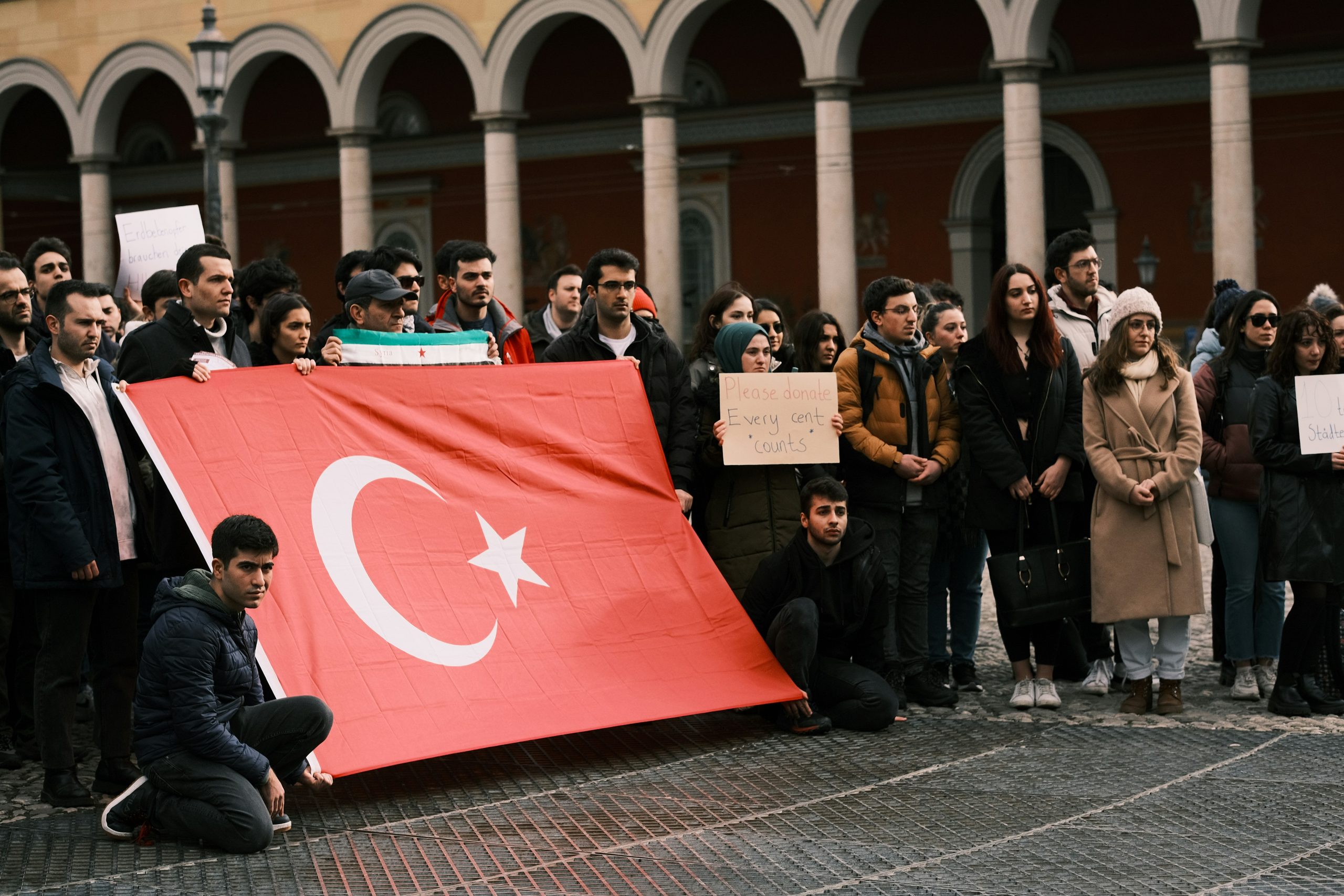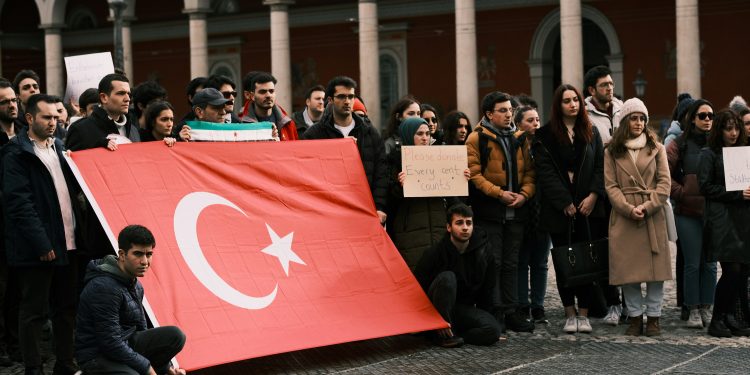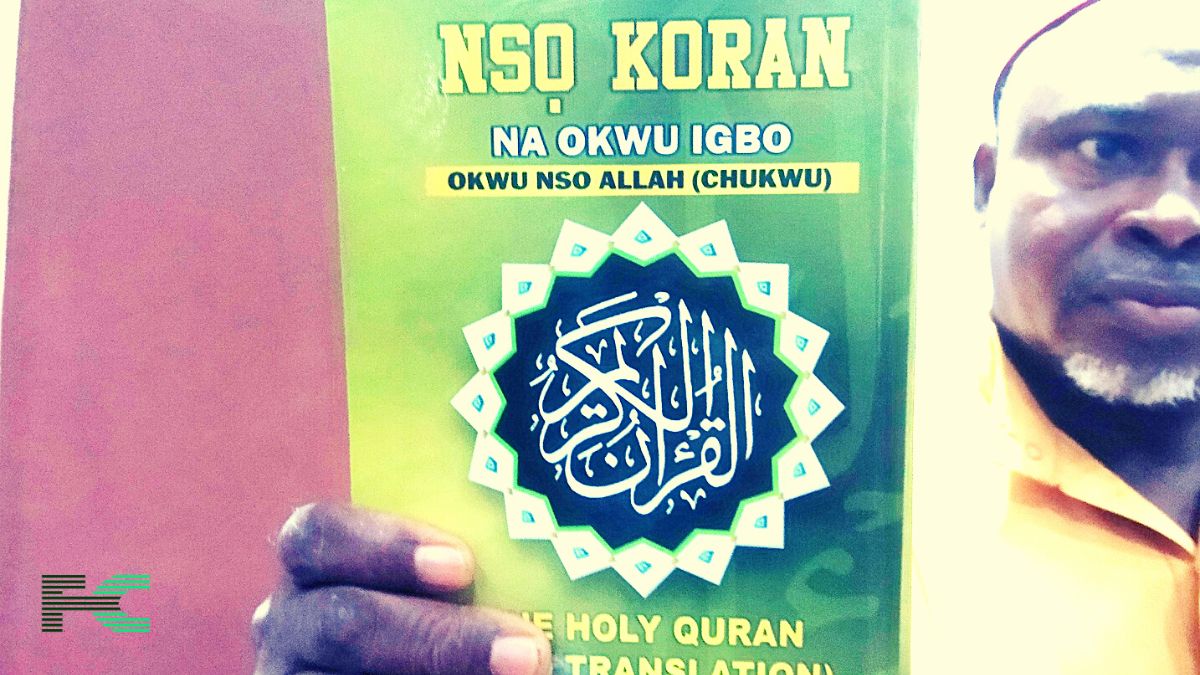Turkish authorities have arrested four employees of LeMan magazine, including its editor-in-chief and cartoonist, over an alleged depiction of the Prophet Muhammad—a figure whose visual representation is considered blasphemous in Islam. The detentions sparked violent protests in Istanbul, where riot police fired tear gas and rubber bullets to disperse crowds chanting for revenge outside the magazine’s offices.
Turkey’s Interior Minister Ali Yerlikay denounced the cartoon as a “vile drawing”, sharing footage of the arrests on social media. Justice Minister Yılmaz Tunç announced a criminal investigation for “insulting religious values”, warning that such depictions “harm societal peace.” Arrest warrants have also been issued for additional LeMan senior staff, intensifying scrutiny over the controversial artwork.
The controversial cartoon in question which circulated online, shows two winged figures above a war-torn city, with one saying, “Peace be upon you, I’m Muhammed.” LeMan insists the characters represent Muslim victims of Israeli attacks, not the Prophet, calling accusations a “malicious misinterpretation.”

Magazine Defends Work, Cites Charlie Hebdo Parallels
In a statement on X (formerly Twitter), LeMan apologized to readers who felt offended but maintained the cartoon was not a depiction of Muhammad. The original magazine’s Paris-based editor-in-chief, Tuncay Akgün, told AFP the backlash mirrors the 2015 Charlie Hebdo attack, where Islamist gunmen killed 12 over similar satire. “This comparison is intentional and alarming,” he said, emphasizing LeMan would “never risk” provoking such reactions.
The arrests highlight Turkey’s tightening censorship under President Recep Tayyip Erdoğan, who has increasingly invoked religious conservatism to suppress dissent. Critics argue the crackdown exploits blasphemy laws to silence satire, while officials frame it as protecting Islamic sensitivities in the majority-Muslim nation.
Why It Matters
The case has drawn parallels to other free speech controversies, including France’s Charlie Hebdo massacre and Denmark’s 2005 cartoon crisis. With LeMan’s staff facing prosecution, press freedom advocates have warned that Turkey is criminalizing criticism under the guise of religious protection. A trend that could further erode its already declining media freedoms.

















